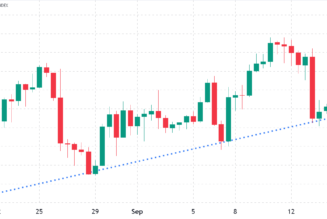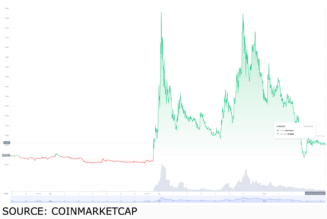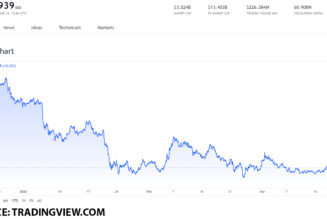
On Aug. 30, global investment bank UBS increased its view on the risk of the United States entering a recession within one year to 60%, up from 40% in June. According to economist Pierre Lafourcade, the latest data showed a 94% chance of the economy contracting, but added that it “does not morph into a full-blown recession.”
Partially explaining the difference is the “extremely low levels” of non-performing loans, or defaults exceeding 90 days from credit borrowers. According to Citigroup Chief Executive Jane Fraser, the institution “feels very good about” liquidity and credit quality. Furthermore, Reuters states that the financial industry wrote off merely 0.1% of its loans in the 2Q.
The problem is that even in the now-improbable scenario of avoiding a generalized recession, companies will face diminishing earnings as surging inflation limits consumption and Central Banks increase interest rates while winding down their balance sheets. Either way, the pressure on corporate profits is huge and this puts pressure on stock prices.
The valuation dynamics for cryptocurrencies vastly differ from equities, corporate debt, and stock markets. The truth is that there are no set metrics or indicators to guide token prices. Market participants have different perspectives on the protocols and their use cases.
On the other hand, the stock market has battle-tested valuation indicators that have been consistently used for decades, pounded by analysts, pundits and investors. For instance, the Price / Earnings multiple measures how many years would take a company to generate enough profit to cover its current market capitalization.
Regardless of how one measures the stock market success, it depends on margins, revenues, interest rates, and the U.S. dollar foreign exchange rate. That’s why a stock can go down 70% or more even before a recession hits the markets, as it desperately needs a constant inflow of revenues. It’s unlikely that the same rationale is applicable to crypto?
Understanding stock markets and commodities valuation
The first rule of equities valuation is: investors have different inputs, expectations, and timeframes for a stock. Sure, there are consolidated models, indicators and analysts’ recommendations, but ultimately, there’s no guarantee that the equity price will follow any rationale.
We can chart the Price / Earnings multiple, Enterprise Value / EBITDA, or whatever metric investors closely monitor. However, one will never know what the future holds for those companies, even those carrying long-term contracts, such as the energy sector.
Trader’s should not confuse volatility with valuation. A company can have steady and predictable cash flow, but that might become a liability during bull markets when other sectors are growing earnings and expanding. Moreover, a stock market price is never immune to the broader economy because, ultimately, a financial institution’s collapse might as well drag down counterparties.
Let’s take a simple and utopic example, the New York real estate market. If development enters a grinding halt, there is no change in the utility of the land, including houses, commercial and agricultural spaces. If an aggravated crisis causes the rupture, there’s even room for price appreciation since some investors would seek shelter in hard assets.
The same can be said for oil, gold, or cattle. There’s no need for a constant flow of earnings to sustain those assets’ value. Worst case scenario, no more gold and oil gets extracted from the ground, but their price will likely increase as the currently available supply diminishes.
What are cryptocurrencies after all?
It does not matter whether investors consider Bitcoin (BTC) and Ethereum (ETH) as commodities, currencies or novel technology bets. Both assets have extremely limited production schedules, which will be kept even if the hashrate and validators (nodes) drop by 90%. Their use as independent digital asset transmission systems will continue working as planned.
As previously stated, the price of cryptocurrencies might be heavily impacted by an enduring economic recession, but there’s hardly a scenario where the networks become useless due to inflation, rising interest rates or credit defaults. The same rule cannot be applied to Walmart, UnitedHealth Group, or Ford Motor Company — all top 20 companies by revenue.
Paradoxically, failing companies are not a suitable store of value during a recession, meaning bankrupt assets can be liquidated and the shareholder gets zero. The decentralization aspect of cryptocurrencies shields investors from even the worst-case scenarios, including delisting from major exchanges.
At the same time, the initial shock of a global recession, for example, the housing market crash and growing distrust in the financial system, could pave the way for alternative hard assets, including cryptocurrencies.
Right now, it sounds like a distant dream, but a full-blown recession would be the first major global financial crisis experienced by cryptocurrencies since Bitcoin’s inception in 2009.
Whether or not crypto valuations will sustain themselves in the long run is still undecided. So far, the sector has endured major market participant failures, including exchanges and lending intermediaries and during this time no need for intervention was required. Thus, one could say that it passed its first test, although it’s too early to issue the final report.
The views and opinions expressed here are solely those of the author and do not necessarily reflect the views of Cointelegraph. Every investment and trading move involves risk. You should conduct your own research when making a decision.
 [flexi-common-toolbar] [flexi-form class=”flexi_form_style” title=”Submit to Flexi” name=”my_form” ajax=”true”][flexi-form-tag type=”post_title” class=”fl-input” title=”Title” value=”” required=”true”][flexi-form-tag type=”category” title=”Select category”][flexi-form-tag type=”tag” title=”Insert tag”][flexi-form-tag type=”article” class=”fl-textarea” title=”Description” ][flexi-form-tag type=”file” title=”Select file” required=”true”][flexi-form-tag type=”submit” name=”submit” value=”Submit Now”] [/flexi-form]
[flexi-common-toolbar] [flexi-form class=”flexi_form_style” title=”Submit to Flexi” name=”my_form” ajax=”true”][flexi-form-tag type=”post_title” class=”fl-input” title=”Title” value=”” required=”true”][flexi-form-tag type=”category” title=”Select category”][flexi-form-tag type=”tag” title=”Insert tag”][flexi-form-tag type=”article” class=”fl-textarea” title=”Description” ][flexi-form-tag type=”file” title=”Select file” required=”true”][flexi-form-tag type=”submit” name=”submit” value=”Submit Now”] [/flexi-form]










Tagged: Citigroup, Commodities, Credit, crypto blog, Crypto news, Ford, Inflation, Markets, recession, Stocks, UBS, walmart